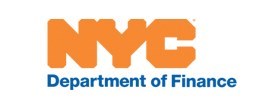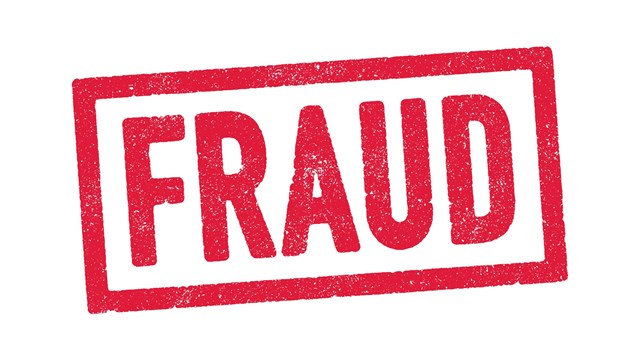
The New York City Department of Finance (DOF) is the city's revenue service, taxing authority and recorder of deeds. It collects more than $39 billion (yes, with a 'b') per year in revenue, and values more than 1 million properties collectively appraised at more than $988 billion. The department is headed by Jacques Jiha, appointed as commissioner by Mayor Bill De Blasio in April of 2014.
A DOF Snapshot
The Department of Finance is composed of seven different divisions:
The City Registrar
Payments, Audit, and Collections
Parking and Violations
Property Tax and Exemptions
The Office of the Sheriff and Tax Enforcement
Treasury and Cash Bail
The Mayor’s office of Pensions and Investments
The Banking Commission
In short, if it has to do with monetary transactions in the city, the Department of Finance is usually involved to a greater or lesser degree. The divisions most relevant to the co-op and condominium community are the Registrar, Property Tax and Exemptions, and the Banking Commission. (Though if you’ve not complied with whatever financial or tax regulations you should have, you may find yourself doing business with the Sheriff as well.) Here's a quick look at how those departments impact co-op and condo owners:
The City Registrar
The City Registrar records and maintains all official documents related to real estate, including deeds, mortgages, and leases, and has offices in every borough except for Staten Island, where the Office of the County Clerk provides these functions. Records going back to 1966 are maintained online in the Automated City Register Information System (ACRIS). The City Registrar Division also collects real property transfer and mortgage recording taxes when documents are submitted for recording. Clearly, for co-op and condo owners, the Registrar provides a critical function in memorializing the ownership of units – which is critical to an owner’s legal status and the protection of assets.
Payments, Audits, and Collections
The Department of Finance also bills and collects property taxes, business taxes and excise taxes. Payments are accepted online, by mail, or in person at Finance Business Centers. For all taxes except property taxes, the Department’s auditors monitor payments to ensure that underpayments or nonpayments do not occur. Unpaid taxes or other debt owed to the City are collected by the Department of Finance through letters, phone calls, and court actions, as well as other enforcement efforts.
Property Taxes and Exemptions
The Department of Finance values all property in the city through the Office of Real Property, usually referred to as the Assessor’s Office. More than one million parcels are valued each year to produce the official Assessment Roll. The City’s property tax rates are applied to a property’s assessed value to calculate what the owner owes in property taxes. The Department of Finance also administers exemption and abatement programs that can lower property owners’ tax liability.
After the city’s property tax rates are set each year by the mayor and city council, the Department calculates, bills and collects property taxes and other property-related charges. When property taxes or other charges remain unpaid, the Department administers a property tax lien sale to collect the unpaid taxes. In addition to administering property taxes, the Department of Finance also maintains the official tax maps of New York City.
The Sheriff, Tax Enforcement, and the Banking Commission
The Office of the Sheriff enforces mandates, orders, warrants and decrees for the courts. Enforcement tools include evictions and seizure of property for unpaid judgment debt. With regards to real property, the Department of Finance also conducts tax fraud investigations and auctions for properties they seize.
When it comes to the co-op and condominium industry, as well as the real estate industry in general, the Banking Commission recommends interest rates to the City Council for late payments of property taxes and water and sewer rents, as well as discount rates for early payments of property taxes.
Interacting with the DOF
Interacting with the Department of Finance is a fact of life for homeowners, managers and attorneys in New York City. These interactions primarily involve real estate tax bills, water and sewer tax bills, and the co-op/condo abatement program. The latter is an equalization program designed to provide fair treatment to co-op and condo owners relative to single-family homeowners within the overall assessment of residential property in New York City. Other programs administered through the Department include SCRIE exemptions, veterans’ abatements, and the STAR program.
If you need to reach the Department of Finance with a question, or to sort out some tax- or payment-related issue, that can take some doing. That's because there is no direct phone number to call. All contact must be funneled through the city's 311 information line, or online through the department’s website. According to Raymond Guillermo, Assistant Controller with Manhattan-based co-op and condo management firm Gumley Haft, “For the most part, we can access most of what we need online. We can download real estate tax bills, water and sewer bills, tax history, etc. When we run into a problem, though, it can become challenging. If you have a specific problem, you may need to actually speak to someone – and that’s difficult.”
Guillermo describes a situation dealing with filing for the co-op/condo abatement. A recent change in the law stipulates that in order to receive the abatement, the owner of a co-op or condo unit must use that unit as their primary residence. “Let’s say,” says Guillermo, “that we receive a notice that according to the Department of Finance, a certain owner is not a primary resident – be we know that in fact the owner has lived there for years, as a primary resident. We might want to speak to someone to resolve the problem quickly – but we can’t do that. It may take some time to resolve the issue through online resources, and that may result in additional costs to the owner. Our client wants to know that their problem has been solved. We can’t always do that.”
So, what do managers do? The trade secret is that along the way, officials at the Department of Finance may occasionally need to speak directly with managers. When that happens, managers simply save the DOF officials' numbers for the future, just in case. While that may give on-the-ball managers a direct channel when questions or issues arise, clearly it doesn’t help individual apartment owners who may have to contact the department themselves. For them, and for the rest of us, 311 is pretty much the only way to go.
In a given situation, the determination of who should handle contact with the Department of Finance depends upon the purpose of the contact. “Typically, the managing agent will deal with issues relating to tax abatements,” says Phyllis Weisberg, a partner at Armstrong Teasdale, a law firm located in Manhattan. “In a condominium, the architect is usually the one dealing with the Department if the issue relates to combination of tax lots, as when two apartments are combined. If there are issues relating to the assessment, or protests of the assessment, those are typically handled by the co-op or condo’s tax certiorari attorney. For assessed valuations, including exemption issues, there is an appeal available to the Tax Commission and then a court proceeding may be instituted.” Tax certiorari is the process by which courts review a real property’s tax assessment. Tax assessments are determined by the Assessors’ Office, a division of the Department of Finance.
Communications
Given the lack of a direct line to the DOF, communications, both with the public and their representatives, as well as between agencies, seems to be something of a challenge for the Department. As reported in our article of October 2018, HDFC Co-op Real Estate Tax Foreclosures: A Slow Moving Crisis in the Making (https://cooperator.com/article/hdfc-co-op-real-estate-tax-foreclosures/full#cut), Glory Anne Hussey Kerstein of the HDFC Steering and Anti-Foreclosure Committee says that failures of communications between the Departments of Finance and Housing Preservation and Development (HPD) led to many tax bills and potential default notifications being sent to incorrect addresses. These two city agencies did not share a database, nor did they notify each other of changes in residents' basic contact information. This lack of communication and coordination resulted in many HDFC properties going into default for nonpayment of real estate taxes and water and sewer charges.
Weisberg relays another, similar situation. “Many years ago, we and our client were shocked to learn that, although all their real estate taxes had been paid, they had not been credited to our client and, as a result, the City had sold the tax lien for nonpayment of taxes – and our client no longer had title to its property. It took a while to find someone at the Department of Finance who would look into this, but after several months, a little litigation, and incurring legal fees, the tax payment was credited properly, and the property restored to our client.”
Benjamin Franklin once said that, “In this world, nothing can be said to be certain except death and taxes” – and that’s certainly true if you own property in New York City. Over the past years, in an effort to streamline City bureaucracy and to increase efficiency, the City of New York has shifted much of its contact with the public and their representatives online. While that may eliminate long lines at offices and long waits on the phone, make sure your bills and payments are on time and received correctly, because one thing is for sure: if you owe the City of New York money, the Department of Finance will collect it.
A J Sidransky is a staff writer/reporter with The Cooperator, and a published novelist.






Leave a Comment